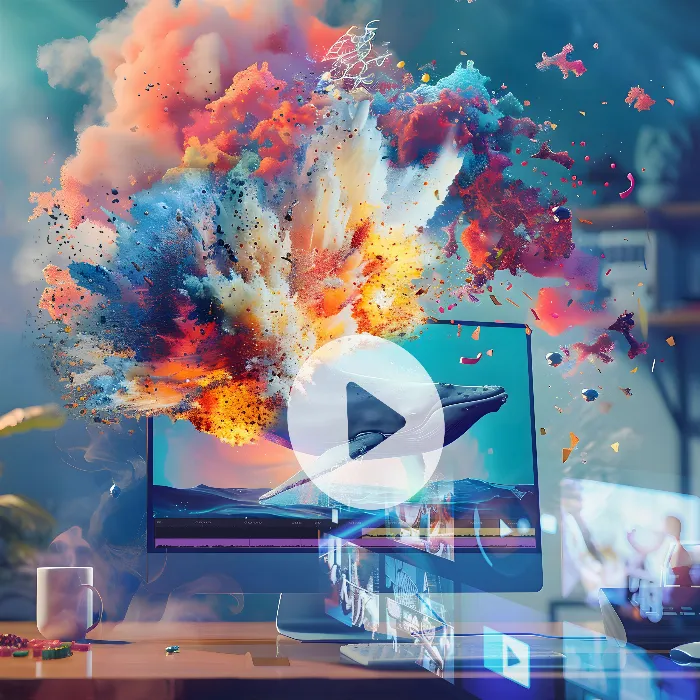Creating videos with the help of Artificial Intelligence (AI) can be an exciting and creative experience. However, it also poses significant risks, especially concerning copyrights, data protection, and copyright. In this guide, you will learn what to pay attention to in order to avoid legal issues and successfully implement your creative projects. This information is particularly important when generating content that may be copyrighted or infringe on others' privacy.
Key Insights
- Copyrights are complex, especially when using AI-driven tools.
- Be cautious when using third-party content - it can lead to legal consequences.
- Use only images and videos you have created yourself or for which you have the rights.
- Many AI tools do not provide clear guidelines on copyrights.
- Be mindful of your own data usage and do not upload anything that could make you uncomfortable.
Step-by-Step Guide
Understanding Copyrights
First and foremost, it is important to understand the basic principles of copyright. Copyright protects creative works and ensures that creators retain control over their content. When creating videos, it is crucial to determine if the materials you use are subject to copyright.
Using AI Tools
When using AI tools for video creation, it is vital to understand the different licenses and copyrights of each tool. Some tools are open source and offer more freedom, while others have strict terms of use.
Creating Your Own Content
A safe approach is to create your own content. By uploading images or videos that you have created yourself, you minimize the risk of copyright infringement. Use only materials that you have produced yourself or for which you have explicit permission to use. This is especially important for social media, where content often goes viral quickly and can trigger legal issues.
Handling Confidential Information
If you are using images or videos of other individuals - even if they are friends or acquaintances - be sure to obtain their consent. Publishing content without the consent of the individuals involved can lead to legal difficulties. Ensure that the materials you use do not violate data protection policies.
Risk Management
When creating AI videos, it is advisable to always use common sense. Avoid using copyrighted characters or brands in your videos unless you have the rights to do so. For example, if you want to create an animation featuring characters that are trademarks of well-known companies, it could lead to legal issues for you.
Uploading Your Own Images and Videos
When uploading your own images or videos, ensure they do not contain sensitive information or compromising content. Uploading unauthorized or personal content can harm you and result in long-term legal consequences.
Legal Protection through Tools
Some AI tools, such as those from OpenAI, claim to offer copyright shields. The providers assert that you can create anything you want using their tools. However, this legal protection can be complex and may not apply in every case. It is important to understand that the responsibility for the content you create ultimately lies with you.
Deepfakes and Their Risks
Another prominent issue is Deepfakes. These are forged visual contents that can not only be problematic but also have the potential to cause legal problems. Avoid experimenting with Deepfakes to violate privacy or the rights of others.
Summary
In this guide, you have gained valuable information on copyrights, data protection, and copyright issues when creating AI videos. Always remember that responsible handling of copyrighted content is crucial for the success and legal certainty of your projects.
Frequently Asked Questions
What does copyright stand for?Copyright protects creative works and enables artists to control their content.
What are the risks of using AI tools?The risks often involve unclear copyright situations and the risk of using copyrighted content without the necessary rights.
Can I use content from others?Yes, but only if you have the explicit permission of the creator or if the content is in the public domain.
What can I do to avoid legal problems?Create your own content and only use materials for which you have the rights or that are publicly available.
Why is data protection important?Data protection safeguards personal information and the privacy of individuals, which can lead to legal consequences if violated.


